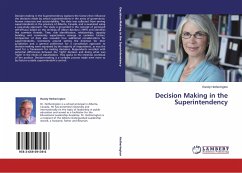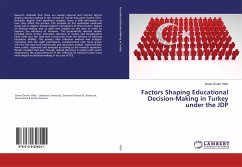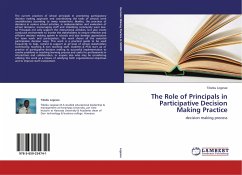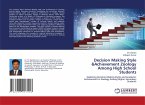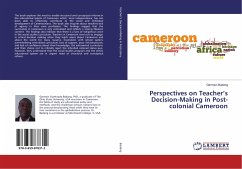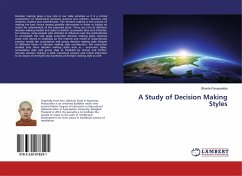Decision-making in the Superintendency explores the factors that influence the decisions made by school superintendents in the areas of governance, human resources and accountability. The data was collected from serving superintendents in the province of Alberta, Canada, and is examined using a case-study approach. The study is grounded in the concept of perceived self-efficacy based on the writings of Albert Bandura (1997) and identifies five common threads. Time, role identification, relationships, capacity building and community expectations emerge as common factors. Comparison of data also revealed four additional considerations for superintendents. Comments around setting the direction for their jurisdiction and a general preference for a consultative approach to decision-making were expressed by the majority of respondents, as was the need for a framework for making decisions. Respondents wrestled with potential differences between the "right" decision and doing what was "right" in the minds of stakeholders. They spoke to the immense workload of the position. Decision-making is a complex process made even more so by factors outside superintendent's control.
Bitte wählen Sie Ihr Anliegen aus.
Rechnungen
Retourenschein anfordern
Bestellstatus
Storno

